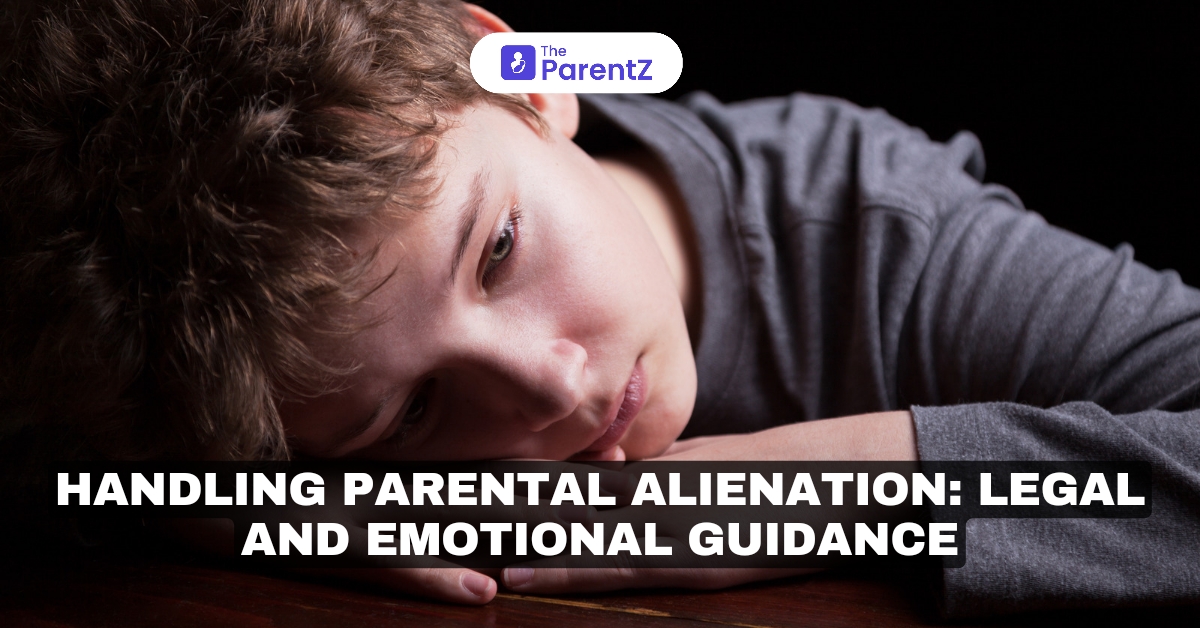Parental alienation is a complex and emotionally charged issue that arises during or after separation and divorce, where one parent attempts to undermine the relationship between the child and the other parent. This manipulation can have devastating effects on children, leading to long-term emotional and psychological consequences. Understanding how to navigate the legal and emotional aspects of parental alienation is crucial for affected parents. This article provides a comprehensive overview of parental alienation, its signs, legal strategies to combat it, and emotional guidance for both parents and children.
Understanding Parental Alienation
Parental alienation refers to a process where one parent (the alienating parent) systematically undermines the child's relationship with the other parent (the targeted parent). This can occur through various tactics, including badmouthing the targeted parent, limiting contact, interfering with communication, and instilling fear or distrust in the child regarding the targeted parent. The alienating behaviors can be subtle or overt, but their impact is profound, often leading to a child rejecting or showing hostility towards the targeted parent.
Signs of Parental Alienation
Recognizing the signs of parental alienation is essential for addressing it effectively. Common indicators include:
- Sudden Change in Attitude: A noticeable shift in a child's feelings towards one parent, often characterized by hostility or resentment.
- Echoing Negative Statements: The child may repeat derogatory comments about the targeted parent that they have heard from the alienating parent.
- Refusal to Spend Time: An unwillingness to engage in activities or spend time with the targeted parent without valid reasons.
- Increased Anxiety: The child may exhibit anxiety or distress when transitioning between homes or discussing the other parent.
- Lack of Guilt: The child shows no remorse for hurtful behavior towards the targeted parent.
Understanding these signs can help parents take timely action to protect their relationship with their children.
Legal Strategies to Combat Parental Alienation
Addressing parental alienation often requires legal intervention. Here are some effective strategies:
1. Documenting Evidence
Maintaining comprehensive records is crucial in cases of parental alienation. Parents should document interactions with their children, noting dates, times, and any concerning behaviors or statements made by the child. This includes:
- Keeping a journal of visits and communications.
- Documenting instances where the child expresses hostility or reluctance towards one parent.
- Collecting evidence such as emails, text messages, and witness statements that demonstrate patterns of alienating behavior.
This thorough documentation creates a clear picture of the alienation patterns, which can be vital in legal proceedings.
2. Seeking Legal Counsel
Engaging a family lawyer experienced in parental alienation cases is essential. A lawyer can help navigate the complexities of family law and advocate for your rights effectively. They can assist with:
- Filing necessary motions to modify custody arrangements.
- Requesting court orders to enforce visitation rights.
- Presenting evidence of alienating behaviors in court.
A skilled attorney will understand how to frame your case effectively while prioritizing your child's best interests.
3. Modifying Custody Arrangements
If parental alienation is evident, seeking a modification of custody arrangements may be necessary. Courts generally favor maintaining a meaningful relationship between children and both parents unless there are concerns about safety or abuse. If you suspect that your ex-partner is engaging in alienating behaviors, you may need to present evidence to support your case for modification.
4. Court Orders for Counseling
In some instances, courts may order counseling for both parents and children as part of custody arrangements. Counseling can help address underlying issues contributing to parental alienation and promote healthier communication between all parties involved. Engaging in family therapy can provide a structured environment for addressing conflicts and rebuilding relationships.
5. Independent Children’s Lawyer (ICL)
In cases involving severe parental alienation, courts may appoint an Independent Children’s Lawyer (ICL) who represents only the child's interests. The ICL will assess the situation by consulting various sources such as teachers or welfare authorities to ensure that the child's voice is heard throughout legal proceedings.
6. Expert Witnesses
Requesting the appointment of an expert witness—such as a psychologist—can provide valuable insights into family dynamics and help determine whether one parent is exhibiting alienating behaviors. Expert opinions can significantly influence court decisions regarding custody arrangements.
7. Supervised Visitation
In extreme cases where parental alienation is severe, courts may impose supervised visitation for the offending parent until trust can be rebuilt between the child and the targeted parent. This measure ensures that interactions between parents are monitored and that children's emotional safety is prioritized.
Emotional Guidance for Parents
Dealing with parental alienation can be emotionally taxing for both parents and children. Here are some strategies for managing emotional challenges:
1. Maintain Open Communication
Encouraging open dialogue with your child is crucial during this difficult time. Allow them to express their thoughts and feelings freely without fear of judgment or repercussions. Validate their emotions while reassuring them of your love and commitment regardless of external circumstances.
2. Create Positive Experiences
Focus on creating positive experiences with your child during visits. Engage in activities they enjoy to strengthen your bond despite external pressures they may face from the other parent. Building happy memories together can counteract negative influences.
3. Seek Professional Support
Consider seeking professional help from therapists specializing in family dynamics or parental alienation cases. Therapy can provide coping strategies for both you and your child while fostering resilience against external influences.
4. Practice Self-Care
Managing your emotional well-being during these challenging times is essential. Engage in self-care practices such as exercise, meditation, or joining support groups where you can share experiences with others facing similar situations.
5. Avoid Negative Talk About the Other Parent
While it may be tempting to share your frustrations about the other parent's behavior with your child, refraining from negative talk is essential. Speak positively about their other parent whenever possible; this approach helps alleviate pressure on your child while promoting a healthier environment overall.
Rebuilding Trust with Your Child
Rebuilding trust after experiencing parental alienation requires patience and perseverance:
- Consistency: Be consistent in showing love and support toward your child despite any negative influences they may experience from the other parent.
- Empathy: Show empathy toward their emotions; acknowledge that they may feel confused about their feelings towards both parents due to external pressures.
- Quality Time: Make an effort to spend quality time together engaging in fun activities that strengthen your bond while allowing them space to express themselves freely without judgment.
- Therapy: If necessary, consider family therapy sessions aimed at rebuilding relationships within a structured environment guided by professionals who specialize in these matters.
- Patience: Understand that rebuilding trust takes time; children may need time to process their feelings before fully reconnecting emotionally with either parent again.
Conclusion
Parental alienation presents significant challenges for families navigating separation or divorce; however, understanding its dynamics allows affected parents to take proactive steps toward resolution through legal avenues while providing emotional support for themselves and their children alike . By documenting evidence , seeking professional guidance , maintaining open communication , creating positive experiences together ,and practicing self-care ,parents can work towards rebuilding trust within their relationships despite external pressures they may face from an alienating partner . Ultimately prioritizing children's well-being throughout this process will foster healthier family dynamics long-term—ensuring that all parties involved emerge stronger from these trying circumstances





Be the first one to comment on this story.